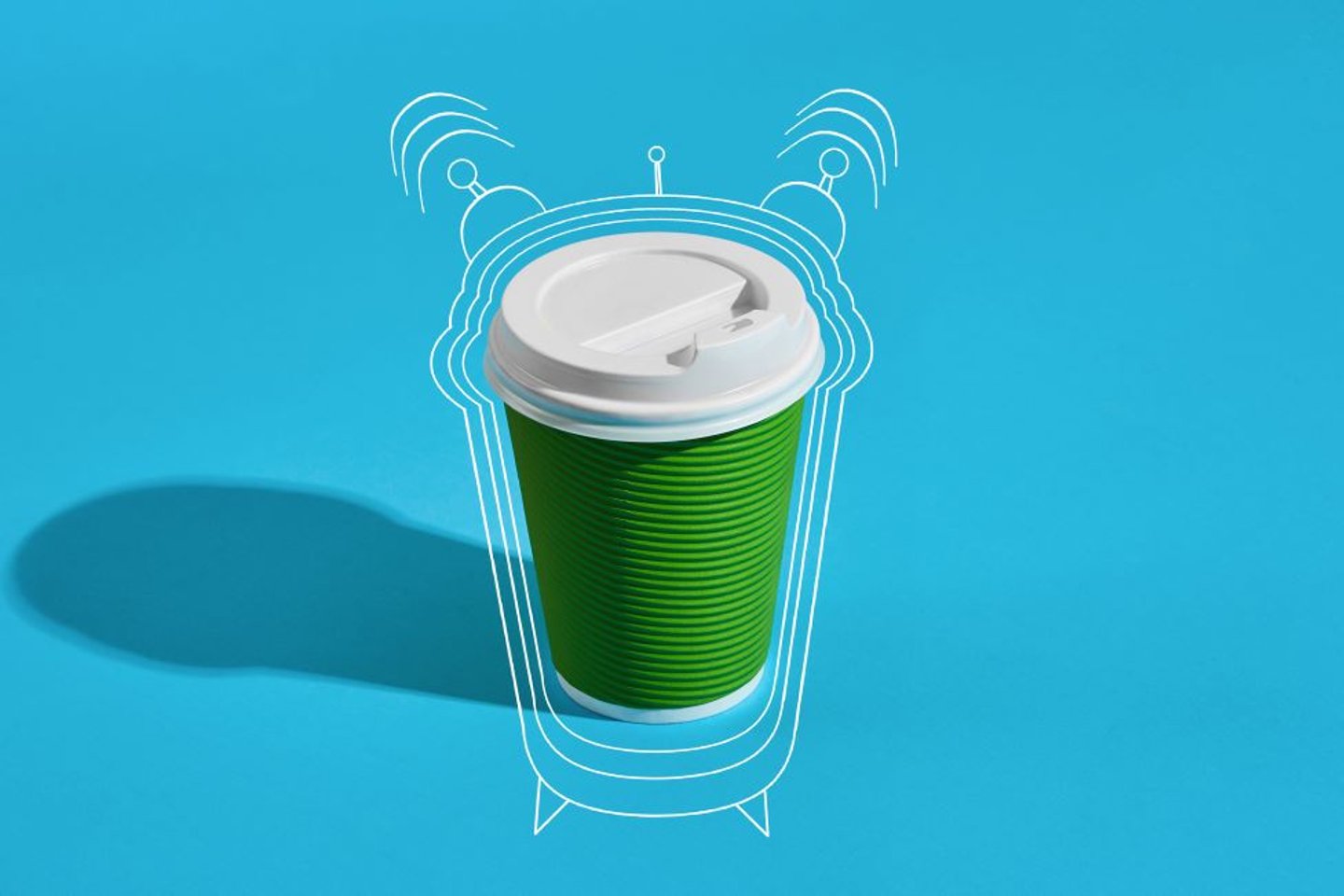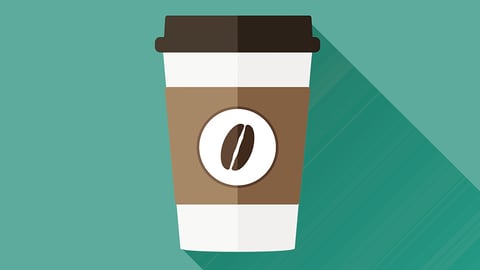Coffee time is any time
Kendralyn Van Daele is the manager of Goulais River Country Store, named after the northern Ontario community in which it is located. Goulais River is home to only about 5,000 people, but a 20-minute drive south is Sault Ste. Marie, with a bustling populace of about 75,000.
Following her father Kenneth Peter Van Daele’s purchase of the c-store in July 2022, the father and daughter duo have made improvements to its product offering, including coffee. “The story had always had a coffee bar, but the coffee was just in thermoses and wasn’t always fresh,” says Van Daele. “We wanted to try and get more people in the community into our store with better coffee instead of having to drive into Sault Ste. Marie every day to get it.”
In February of this year, Goulais River Country Store introduced a Country Style self-serve hot beverage and bakery kiosk with bean-to-cup equipment, including for making French vanilla and café mocha coffees. (The equipment can also make hot chocolate.)
“Since then, our little kiosk has made roughly 16,000 cups of coffee,” raves Van Daele, who adds that café mocha has become the most popular selection with customers. “We have at least tripled our coffee sales in that time, because people aren’t just coming in during the morning rush on their way to Sault Ste. Marie, but in the afternoon and at nighttime because they know their cup of coffee will be fresh.”
They are also buying baked goods, as well as other items (Goulais River Country Store carries everything from fishing tackle to grocery staples and the usual c-store items) since customers pay for the coffee at cash.
MTY Food Group is the operator and franchisor of Country Style, and its “Level 1” Express franchisee program offers the convenience and petroleum channel self-service units. “The rural market in Ontario is where we have performed best, because people in these communities love brands including when it comes to coffee,” says Karen Weldman, VP, new business development-express brands at MTY Food Group, whose restaurant and QSR banners also include Cultures, Mmmuffins, Mr. Sub and Timothy’s. “Convenience stores draw people in typically with lottery and cigarettes, and branded coffee has become another daily driver of traffic into the store.”
There is no denying that coffee in Canada is big business. It accounts for $4.8 billion in foodservice sales according to the Coffee Association of Canada, and considering the $1.8 billion generated at retail, it’s clear Canadians prefer getting their caffeine fix prepared outside the home. While Tim Hortons used to dominate freshly brewed coffee sales, QSRs like McDonald’s invested in a new coffee program with great results, and last year Wendy’s introduced a breakfast menu for the first time in four decades, complete with seasonal coffee offerings.
“Given the focus on coffee from the traditional players, and the big QSRs shifting priority to the category and backing it with massive marketing budgets, there has been a rise in the expectation by customers to get a good quality cup of coffee everywhere,” says Eric Wallace, manager, foodservice operations at Parkland. “As a convenience industry, we need to build trust with those customers through consistency and quality.”
Trust is being earned with the help of advanced bean-to-cup dispensers that produce quality coffee on demand in tens of seconds. Many dispensers are smart machines, saving on both time and labour costs. Next-generation machines, including those adopted by Parkland, even have a module for iced coffee.
Parkland launched its Bistro brand nationwide in On the Run locations in 2022 with freshly ground bean-to-cup machines in place of thermos-held coffee that would see any excess poured down the drain every two hours.
Coffee cups made from bamboo double down on Parkland’s commitment to sustainability. “For our operators, waste reduction, efficiency and reduced labour costs are more important now than ever,” says Wallace. “Bean-to-cup equipment has built in self-cleaning features, while ensuring waste is limited with each cup being ground and brewed on demand.”
Jackie Pink, category manager, coffee, adds that the Bistro is a key component of Parkland’s overall foodservice offering and coffee volume is recovering to pre-COVID levels, even exceeding in some locations.
“With Bistro at over 600 locations nationally, we are able to achieve power and scale for marketing and purchasing, provide a turnkey operation for all new and acquired stores and have laid a foundation to build on,” says Pink. “It will include further integrating Bistro into Parkland’s loyalty program, Journie, as well as other promotions and menu expansion.”
“There is a lot on the horizon for Bistro,” says Pink.
As convenience positions itself as a quality coffee destination, vendors are taking note, targeting the channel with products that meet the standards of discerning java-lovers.
“We recognize the consumer demand for specialty coffee in convenience, as well as improved quality and brewing systems,” says Bari Atkinson, a marketing consultant with Oakville, Ont.-based Reunion Coffee Roasters.
Founded in 1995, Reunion has grown from servicing cafes and restaurants, to becoming a full-service operation that includes wholesale clients. That focus now includes building its presence in the convenience channel, says Atkinson. “We have a unique offering not only on the quality side, but also the sustainability side.”
Canada’s coffee craze by the numbers
Past-day coffee consumption in the country surpassed 22 million adults last year, according to the Coffee Association of Canada’s 2022 Coffee Drinking Study. The study is based on a survey of 3,041 Canadians 18+.
Here are the highlights—including where consumers are getting their caffeine fix.
•73% Almost three-quarters of adults —roughly 22.5 million Canadians — drank coffee the previous day, up from 70% in 2021 and the highest level since 2019. That puts past-day consumption of coffee ahead of tap water (62%), tea and bottled water (44% each), alcohol (40%) and milk/milk-based beverages (35%).
•2.7 The average number of coffee cups past-day drinkers consumed.
•27% More than a quarter of Canadians went outside the home for their past-day java in 2022, up from 25% in 2021 and 22% in 2020. Stats aren’t yet available for 2023, but to get a sense of the opportunity for c-stores post-pandemic, 40% of Canadians went outside the home to have their coffee prepared in 2019.
•33% With grocery prices having soared because of inflation, only one-third of coffee drinkers believe “it’s more affordable to make my own coffee at home than to buy it.” That is, of course, good news for c-stores.
Tapping into coffee’s cool factor
During its last quarter, Starbucks reported that cold drinks made up 75% of U.S. beverage sales, fuelled in part by cold espresso drinks rising 13% versus a year ago. But iced coffees and cold brews aren’t just popular in warmer months. Since April of 2021, cold beverages have accounted for at least 60% of Starbucks’ beverage sales every quarter.
In Canada, c-stores of all sizes have an opportunity to tap into coffee’s year-round market, too.
“The growth in specialty, iced and frozen coffee is being driven primarily by millennials and gen Z,” says Judi Saliba, senior sales executive at TFI Food Equipment Solutions Inc. “They like customization and that is part of the appeal with cold coffees.”
TFI represents fully automatic coffee units from Franke Coffee Systems in Canada, including the Franke A1000 Flex. It comes equipped with a module for making iced coffee, plus specialty coffee (espresso) and bean-to-cup (fresh brew) and boasts a chocolate powder dosing system and a “FoamMaster” for adding a flavourful frothy topping.
The unit enables c-stores to bring in foot traffic all day. “Picking up a hot cup of coffee is a morning ritual for a lot of people, but cold coffee drinkers come morning, afternoon and night,” says Saliba, adding that the Franke units are ideal for c-stores. TFI offers third-party leasing of the machines through Econolease. “Paying off the equipment is contingent upon sales volume, which is connected to both traffic and marketing, but 25 sales per day can pay for some models.”
Major chains are also getting into the cold space in expanding their existing freshly brewed coffee offerings. Parkland has added iced coffee to locations with Bites On the Run, its foodservice concept with M&M Food Market. The company’s rollout of iced coffee across its banners in addition to other varieties is just beginning.
“Going through the COVID experience, the convenience industry has been left with a changed consumer, in that their behaviour has evolved,” explains Jackie Pink, category manager, coffee at Parkland. “They commute differently which has moved them to different daypart purchases. This requires us to offer a more varied selection of coffee types—including iced coffee and lattes—and to ensure it’s always fresh and consistent no matter what time of day they visit.”
“This is an important piece for our industry to adopt,” she underscores.
This article first appeared in the November/December 2023 edition of Convenience Store News Canada.







